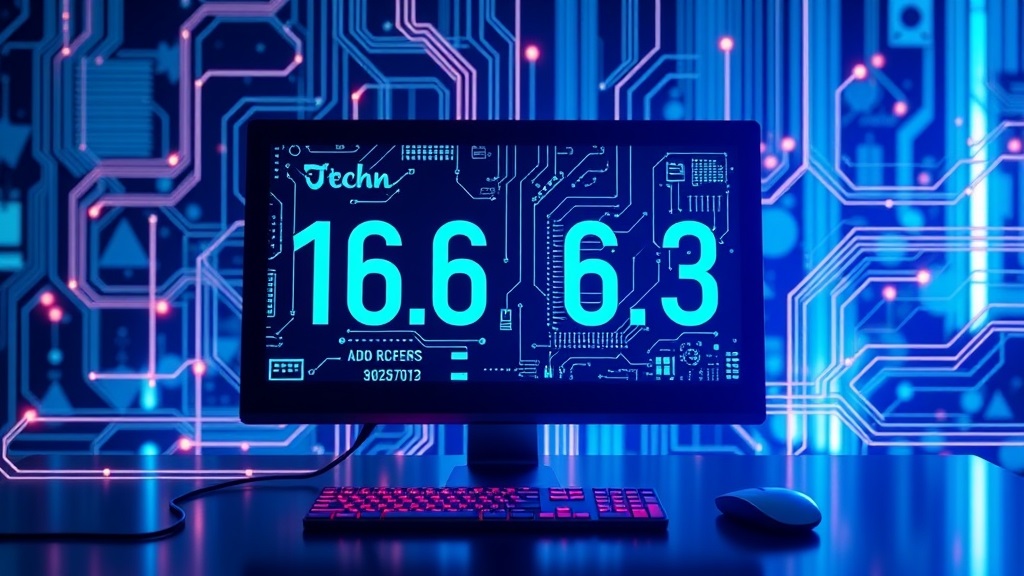Introduction to 185.63.263.20
In the digital world, numbers are more than just digits. They are the backbone of how computers, servers, and networks communicate. One such number that may catch the attention of internet users, system administrators, or security researchers is 185.63.263.20. At first glance, it looks like a random sequence, but in reality, it belongs to the family of IP addresses that play a fundamental role in connecting devices across the globe.
An IP address is like a digital home address. Just as every house has a location on a map, every device or server on the internet has an IP address that identifies it. Without these numbers, the internet would not function as we know it today. The IP address 185.63.263.20 is an interesting one to explore because it can serve as a doorway to discussions about networking, cybersecurity, internet protocols, and how businesses or individuals use servers worldwide.
This article will provide a deep, step-by-step explanation of what this IP address means, how IP addresses are categorized, why such addresses matter in modern networking, and what users should know if they come across 185.63.263.20 in their digital journey.
Understanding What an IP Address Really Is
Before diving into the specifics of 185.63.263.20, it is essential to build a foundation. An IP address (Internet Protocol address) is a unique string of numbers assigned to each device connected to a network. It allows communication between devices by sending and receiving information.
IP addresses come in two major versions:
- IPv4 (Internet Protocol version 4): The most common and widely used system, consisting of four sets of numbers ranging from 0 to 255, separated by dots. An example is 192.168.1.1.
- IPv6 (Internet Protocol version 6): A newer version created to overcome the shortage of available IPv4 addresses. IPv6 uses longer alphanumeric sequences separated by colons, such as 2001:0db8:85a3:0000:0000:8a2e:0370:7334.

The IP address 185.63.263.20 appears to follow the IPv4 format. However, there is an important detail: the number “263” in the third block exceeds the maximum allowed range of 0–255. This means 185.63.263.20 is technically invalid under IPv4 standards.
Why 185.63.263.20 May Still Appear Online
If 185.63.263.20 is invalid under strict IPv4 rules, why do people still see it in logs, websites, or search results? There are several possible explanations:
1. Typographical Errors
Often, when copying or manually typing IP addresses, people accidentally enter numbers that are not possible under IPv4 rules. For example, 263 might have been intended to be 236 or 253, but due to human error, the sequence shows up incorrectly.
2. Testing and Placeholder Use
Some developers or network engineers use invalid IP addresses like 185.63.263.20 as placeholders in documents, tutorials, or test systems. By using invalid values, they avoid accidentally connecting to real servers.
3. Malware or Obfuscation
In cybersecurity, attackers sometimes insert invalid or modified IP addresses into code or logs to mislead researchers and avoid detection. An invalid IP might still appear in certain types of traffic analysis if it was deliberately planted.
4. Misconfiguration in Systems
Routers, firewalls, or applications can sometimes mistakenly generate invalid addresses if they encounter software bugs or misconfigurations. This can cause IPs like 185.63.263.20 to appear even though they cannot actually route traffic on the public internet.
The Role of IP Addresses in Cybersecurity
Even an invalid IP address like 185.63.263.20 sparks important discussions about cybersecurity. Every connection attempt, suspicious log entry, or unusual IP reference can have implications. Cybersecurity professionals monitor IP addresses to identify suspicious activity, block attacks, and trace back malicious actors.
Logging and Monitoring
When analyzing network logs, an invalid IP may indicate:
- A potential attack attempt.
- Misconfigured security tools.
- Fake entries created by malware to mislead defenders.
IP Blacklists
Security companies maintain IP reputation databases. While 185.63.263.20 would not be a valid entry in such databases, variations of it might be included if attackers try to use real neighboring ranges (like 185.63.236.x).
Digital Forensics
Forensic experts analyzing incidents often come across malformed IP addresses. Even though they are not valid, they provide clues about how attackers operate, disguise their tracks, or test vulnerabilities.
185.63.263.20 in Networking Education
From an educational perspective, 185.63.263.20 is useful as a case study. It helps explain concepts such as:
- The valid numerical range of IPv4 addresses.
- Why IP address validation is necessary in programming.
- How system errors can introduce incorrect values into network traffic.
Teachers and IT trainers often show such examples to students so they learn the importance of verifying inputs and recognizing invalid values.
Real-World Scenarios Where Users Encounter IPs Like 185.63.263.20
Web Development
A web developer testing a server setup might put in 185.63.263.20 as a placeholder IP. Later, this test data may accidentally leak into production logs or databases.
Network Troubleshooting
IT engineers diagnosing connectivity issues might see invalid IPs if devices or applications are misconfigured. For example, firewall rules sometimes misinterpret values and record strange IPs.
Security Alerts
In intrusion detection systems, addresses like 185.63.263.20 may appear if malicious code attempted to disguise its origin. Even though it is not routable, it becomes a clue.
How to Handle Encounters with 185.63.263.20
If you ever see 185.63.263.20 in your logs, firewall records, or system settings, here’s what you should do:
- Verify the Source – Check where the address appeared. Was it in a firewall alert, a server log, or an application setting?
- Validate the Address – Use IP validation tools to confirm that it is not a real routable IP.
- Check for Misconfigurations – Review your applications, DNS settings, and firewall rules for errors.
- Consider Security Implications – If it shows up repeatedly in suspicious logs, it could be related to attempted cyberattacks.
- Replace Placeholders in Code – Developers should ensure test addresses are replaced with correct ones before production release.
Broader Importance of IP Address Knowledge
Exploring 185.63.263.20 opens the door to a broader discussion about why understanding IP addresses is crucial for everyday users, businesses, and security experts.
- For Individuals: Knowing about IP addresses helps improve awareness about privacy, VPN usage, and online security.
- For Businesses: IP addresses matter in hosting, domain management, cybersecurity defense, and digital forensics.
- For Researchers: Studying IP ranges, including invalid or suspicious ones, reveals patterns of malicious activity.
Conclusion
At first glance, 185.63.263.20 looks like just another IP address. However, when analyzed closely, it represents something deeper: the importance of proper IP validation, the role of such numbers in cybersecurity, and the way errors or placeholders can influence digital systems. While the address itself is invalid under IPv4 standards, its existence in logs, codes, or discussions is a reminder of how complex and interconnected the internet really is.
By understanding cases like 185.63.263.20, readers can strengthen their knowledge of networking, recognize the importance of accurate configurations, and become more alert about potential security risks. In a digital era where every number can matter, even an invalid IP provides valuable lessons.
FAQs on 185.63.263.20
Q1: Is 185.63.263.20 a real IP address?
No, it is not a valid IPv4 address because one of its octets (263) exceeds the maximum range of 255.
Q2: Why might I see 185.63.263.20 in my logs?
It could appear due to human error, placeholder usage, system misconfigurations, or attempts by malicious software to confuse security tools.
Q3: Can I connect to 185.63.263.20 on the internet?
No, because it is invalid and cannot be routed through the IPv4 system.
Q4: What should I do if I see this IP in security alerts?
Treat it as suspicious. Check for misconfigurations or potential malicious activity, and validate your system settings.
Q5: Does this address belong to any hosting provider or company?
No, since it is invalid, it does not belong to any real provider or network.



